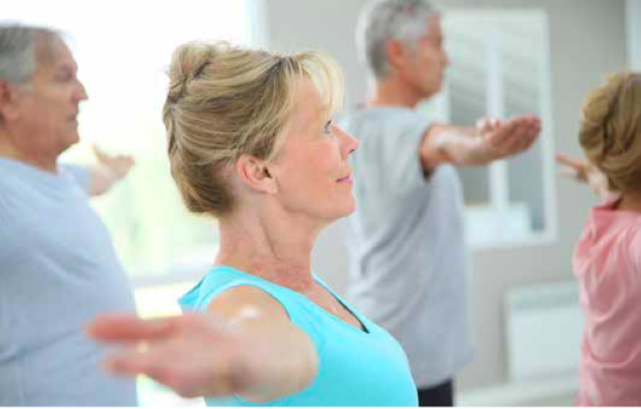Health & Fitness: Aspria takes a look at how to stay active as you get older – it’s never too late!
Increasing your levels of activity in your 40s and 50s can be just as beneficial to your health – in terms of boosting life expectancy – as being a lifelong exerciser. But why, what activities should you do, and how often? A recent study has thrown fascinating new light on the value of being active as you get older. For those who haven’t yet come across this research, a quick summary of the key findings:
1. If you start exercising later in life – even if it isn’t until your 50s – you reduce your risk of early death just as much as people who have exercised their entire lives.
2. Even if you’ve exercised throughout your teens, 20s and 30s, don’t start taking it easy as you get older, because your life expectancy will start to drop again.
The clear message: we need to get, and remain, active if we want to keep our life expectancy high.
The exercise prescription: The overall conclusions and advice based on this study are clear:
1. Being active is great for our health. Where do we start? The list of health benefits is seemingly never-ending, but just as a taster, research shows regular physical activity has a positive impact on a large number of commonly occurring chronic diseases, such as hypertension, high cholesterol, arthritis, diabetes and insomnia, not to mention helping prevent a number of forms of cancer.
It also has a proven role in preventing cognitive decline: research suggests it can cut the incidence of Alzheimer’s disease in half, pushing back cognitive decline by as much as 10–15 years. And if that isn’t enough, new research even suggests exercise can help slow the way our body ages at a cellular level – by up to nine years – helping you not just feel but actually look younger.
2. We need to stay active as we age, establishing a lifelong habit. Of course, what we can expect of our body will naturally decline as we get older – but given the huge impact physical activity has on our long-term mental and physical health, it’s important that we don’t simply shrug our shoulders and resign ourselves to a dramatic decline in our fitness levels as soon as we pass a certain age.







